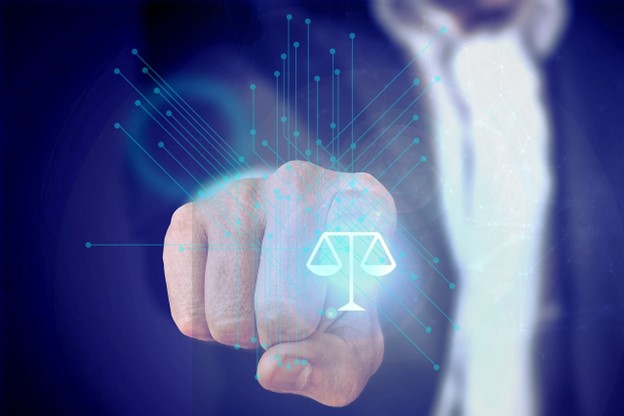To date, the majority of our analysis of the RICO Indictment brought against Donald Trump and much of his 2020 election team has been centered on whether the allegations made are legally and facially sufficient. We have also examined some of the difficult issues that could face prosecutors who are required by law to establish their case “beyond a reasonable doubt.” One such matter is the virtual impossibility of showing that Donald Trump did not truly believe that he won the 2020 Presidential election, and that voter suppression and fraud played a big part in his loss.
One tool that prosecutors use to meet their burden is to compel a co-defendant to testify against the “target” defendant. According to the Legal Information Institute of Cornell University, to “(t)urn state’s evidence…or to “flip” means the defendant chose to reveal valuable evidence to the prosecutor, in exchange for a reduction of the charge or the dismissal of some charges. When the defendant ‘flips’ they are said to have ‘turned state’s evidence.’ This is common in instances of organized crime when a defendant provides information on a co-defendant or other members’ crimes. The defendant tries to flip for a better sentence…”
In Georgia, several of the former President’s co-defendants have entered guilty pleas to reduced charges, with the understanding that these defendants will cooperate, and probably testify, against Trump and the remaining co-defendants. One of those is lawyer Sidney Powell.
As reported by the Associated Press, “Powell gained notoriety for threatening in a Fox Business interview in November 2020 to ‘release the Kraken,’ invoking a mythical sea monster when talking about a lawsuit she planned to file to challenge the results of the presidential election. Similar suits she filed in several states were promptly dismissed.” Then, in October of 2023, “Powell…entered the plea just a day before jury selection was set to start in her trial. She pleaded guilty to six misdemeanors accusing her of conspiring to intentionally interfere with the performance of election duties. As part of the deal, she will serve six years of probation, will be fined $6,000 and will have to write an apology letter to Georgia and its residents. She also recorded a statement for prosecutors and agreed to testify truthfully against her co-defendants at future trials.”
The usual sources made the usual statements regarding Powell’s plea. “’This is a really big breakthrough for prosecutors,’ CNN senior legal analyst Elie Honig said…on “News Central. ‘There’s no such thing as halfway cooperation.'”
What is Georgia DA Fani Willis expecting Powell to say in exchange for her plea deal? “The plea documents make clear that she’s expected to testify about her direct involvement in the breach of election systems in Coffee County, Georgia, where a…group of Trump supporters (allegedly) collaborated with a local election official to access sensitive government data as part of their…search for massive voter fraud….Powell was also in touch with the Trump White House and other figures in Trump’s orbit during the frenzied post-election period…Powell ‘can (also) provide firsthand testimony about things (she) saw, things (she) overheard,’ (according to) CNN legal analyst Elliot Williams.”
Soon after Powell entered her guilty plea, another of Donald Trump’s co-defendants entered a guilty plea in Georgia. “Attorney and prominent conservative media figure Jenna Ellis pleaded guilty…to one felony count of aiding and abetting false statements and writings…She was sentenced to five years of probation along with $5,000 in restitution, 100 hours of community service, writing an apology letter to the people of Georgia and testifying truthfully in trials related to this case.”
Once more, CNN expressed their belief that Trump was a “dead man walking.” “These…plea deals are a monumental step forward for Fulton County District Attorney Fani Willis, who charged the case in August and is preparing for trials against Trump, his former attorney Rudy Giuliani, his chief of staff Mark Meadows and other top figures…Ellis…and Powell…agreed to testify on behalf of the prosecution at future trials. By flipping, these onetime Trump insiders are now on track to become major Trump nemeses. They…can shed light on what was happening behind the scenes in 2020.”
But in discussing Powell’s anticipated cooperation, Williams made an interesting statement – “(I)f prosecutors aren’t satisfied with the evidence that’s provided, they can just yank this plea deal, and put these folks to trial.”
Not quite, Elliot.
While both Ellis and Powell have been sentenced, their cases are not legally concluded. A review of the third page of the plea agreement for Powell in particular states “(t)he Defendant consenting hereto, it is the judgment of the Court that no judgment of guilt be imposed at this time but that further proceedings are deferred…(u)pon fulfillment of the terms of this sentence, or upon release of the Defendant by the Court prior to the termination of this sentence, the Defendant shall stand discharged of said offense without court adjudication of guilt and shall be completely exonerated of guilt of said offense charged.”
This is known as a “conditional plea.” Powell has obligated herself to testify in the trial of her co-defendants by her plea, and has agreed to be truthful when she takes the stand (something that is expected of any witness, in any event). But the conditional nature of this plea agreement gives Powell a very powerful incentive to testify as Willis wants her to testify.
Inadvertently, in giving Powell this incentive, Willis may have handed Trump and his co-defendants a weapon they can use in their own defense.
In any trial, a jury (or the judge, if he or she is acting as fact-finder without a jury) is charged with the responsibility to assess the credibility of any witness. “A credible witness is (one) who comes across as competent and worthy of belief. Their testimony is assumed to be more than likely true due to their experience, knowledge, training, and sense of honesty…(a)n attorney can show jurors a witness is not credible by showing: 1) inconsistent statements, 2) reputation for untruthfulness, 3) defects in perception, 4) prior convictions that show dishonesty or untruthfulness, and 5) bias.” “Bias” is defined as “to exhibit a pre-existing inclination or prejudice for or against someone or something. In the context of evidence in criminal law, bias is used to describe the relationship between a party and a witness which might lead the witness to unconsciously or otherwise, give testimony in favor of or against a party.”
Clearly, whether or not the witness has “turned state’s evidence,” and is awaiting a favorable adjudication of their own charges in exchange for their testimony is an obvious source of bias.
For instance, in the 1984 Rhode Island case of State v. Beaumier, in “a robbery trial…the state’s primary witness was a Providence Police officer and friend of the defendant. According to this officer, defendant admitted to him his participation in the robbery. Defense counsel attempted to cross-examine the officer as to thefts at a lumberyard in which the officer was a suspect and under investigation. Counsel was attempting to show that the officer had a motive to fabricate defendant’s admission in order to ingratiate himself with his superiors. The trial judge precluded this area of inquiry.”
In reversing the conviction, the Rhode Island appellate court stated that “(t)he right of confrontation is concerned with the proposition that a jury be allowed to evaluate any motive that a witness may have for testifying. That right is especially precious where, as here, the motive may belong to the state’s prime witness. It is clear, therefore, that the evidence concerning the investigation should have been admitted…in the final analysis, it is the jury that should consider the evidence and reach its own conclusion.”
Spencer Martinez, writing for the Cleveland State Law Review, notes that “(i)n spite of advances in scientific and statistical evidence, the success of a criminal prosecution continues to hinge primarily on witness testimony. Such evidence is difficult to come by, especially in the case of more sophisticated criminals or defendants who commit crimes through syndicates that insulate them from the relevant actus reus. Therefore, prosecutors must often look to other criminals for case-building testimony. Eliciting testimony from such witnesses often requires that a ‘deal’ be struck, whereby the government promises the guilty witness some degree of leniency for his cooperation. ‘Bargaining’ for witness testimony in this fashion has long been recognized as a legitimate, necessary practice. However, the ramifications of such agreements have always caused concern for those involved with defendants’ rights, as the cooperating witness has a strong incentive to commit perjury to reap the full benefit of the ‘contract.’ This is especially true now that agreements are becoming more liberal with respect to what the government may offer the cooperating witness, what the witness is obligated to do in return, and how the witness is to suffer in the event he fails to perform or fails to secure the desired effect. Clearly the most important safeguard against false testimony is the defendant’s right to cross-examine the cooperating witness as to bias. The defendant’s discretion to probe into cooperation agreements, however, is not on par with the government’s increasing discretion in what it may offer a criminal witness in exchange for his testimony.”
A Georgia jury is free to believe Powell and Ellis. But they are also free to believe that both have strong incentive to testify as DA Willis wishes them to testify.
Thus, having these co-defendants testify against Trump and the other defendants is not a positive development for the defense. But is it the “really big breakthrough” CNN commentators hope it to be?
Probably not.
Judge John Wilson served on the bench in NYC













